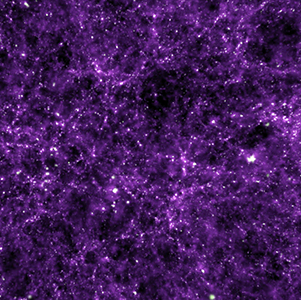
The goal of the Cosmic Structure Science Interest Group (CoS SIG) is to serve communities interested in utilizing measures of cosmic structure based on 3-dimensional spectroscopic and photometric surveys of galaxies, galaxy clusters, supernovae, and gravitational lensing. Science drivers for the SIG include understanding the nature of dark energy, dark matter, neutrinos, and tests of inflation, as well as astrophysical galaxy evolution, amongst others.
The CoS SIG will provide a way to collect, discuss and communicate to NASA community inputs on future missions including quantitative metrics and assessments and new issues as we move up to the 2020 Decadal. This includes:
CoS SIG also provides a way to discuss and coordinate areas of overlapping interest with the other SIGs, e.g, the Inflation Probe SIG (IP SIG), in understanding the theoretical origins of inflation, complementary gravitational tests to those of interest in the Gravitational Wave SIG (GW SIG), and complementary cluster science with X-ray SIG (XR SIG).
The CoS SIG is open to the scientific community.
If you are interested in contributing to the work of the CoS SIG, please subscribe using the link below.
Subscribe to the
Cosmic Structure SIG News and Announcements Email List.